Leadership in Québec, is to be more of a coach than a captain
Jean-Christophe is today head of Birks House, a major player in jewelry and watchmaking in Canada and the USA. His career path is as bright as a real diamond. He joined Cartier for a TBS internship, where he spent the first sixteen years of his career, including four years in London where he obtained an MBA from the London Business School. He left Cartier in 2004, while he was still its general manager, to manage the beautiful Maison Boucheron until 2011 until the Birks Canadians took him across the Atlantic for an 11-year journey. What particularly sheds light on his testimony is in my own opinion, his kindness and humility, which without a doubt has contributed to the strength of his leadership , and to his impressive career path.
Jean-Christophe Bedos
TBS 1987
Président et chef de la direction de BIRKS Group Inc.
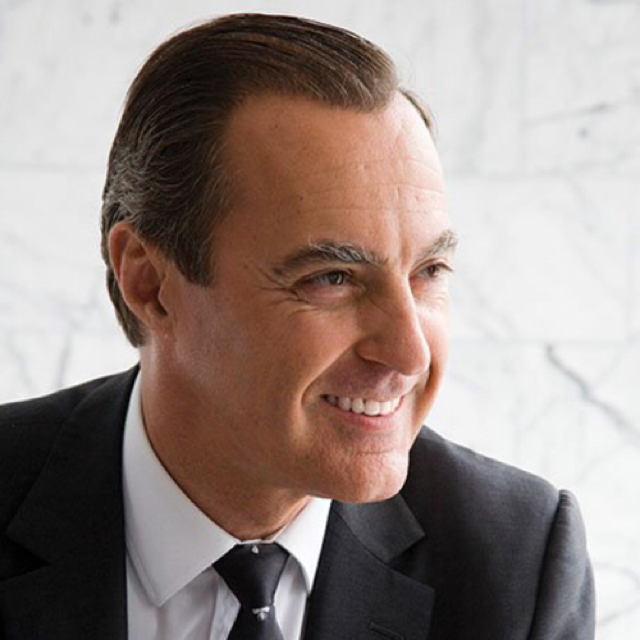 |
Luxury is of course a very notable activity in France. Do you think BRIKS also chose you for that “French Touch”? Yes of course. In the luxury industry, the French touch is more than a style or an image. It is a true ecosystem that not only belongs to the companies in this sector but a whole chain of expertise and knowledge that moves around luxury : The artisans of course, the purchasers of raw materials, the fashion, the press, and then upwards to the general public because even if they don’t buy, the French really understand what luxury is. There are very great talents in France , different expertise’s to protect, extraordinary art workshops, so yes, it was indeed this French touch that BRIKS was looking for to develop and create a jewelry brand in their name. Even if it exists elsewhere of course. In New York for example, unlike Canada, we can also find a luxury ecosystem. |
|
What are the particularities of leadership as you see it in Canada? There are huge differences in leadership patterns in France, Canada, and the United States. Part of it is the commonality of the population, the way Canadians interact and live together. To translate it simply, I would say that the Canadians are full of kindness and that they’re generous. These characteristics can also be explained by the history they share and which is different from those of the countries of the old continent. Canada is a country of much more recent immigration than us. And Quebec too, also has a particular itinerary. It has really built itself and continues to do so around francophone communities. . |
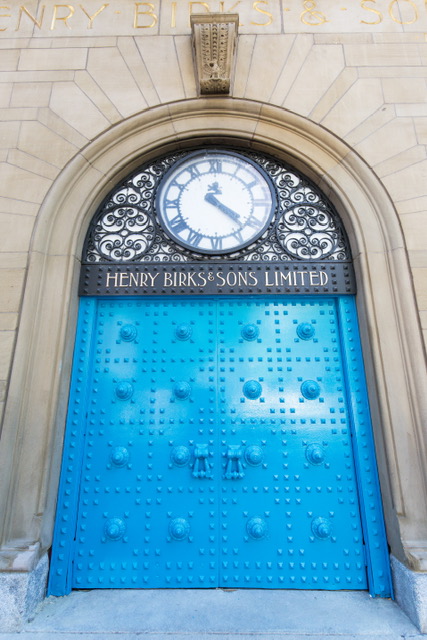 |
Quebeckers are very attached to Francophonie, to the French language. For a Frenchman like me who settled there, it was necessary to understand what this meant and not to confuse Francophonie and French. Because for them the two have nothing to do with each other. They don’t use the French language as a loan; it belongs to them. The second thing to remember is that the French are welcomed with a certain distrust. They are suspected of being a bit contemptuous, arrogant. We must get around that when we arrive there, by taking it into account in the relationships we create with people.
| Quebec too, also has a particular itinerary. It has really built itself and continues to do so around francophone communities. |
We often say that in Quebec people speak three languages: French, English and their native language because there really is a cosmopolitan immigration that has created a cultural kaleidoscope. This says a lot about how people fit in there. For example, this is very different in the USA, where upon arrival immigrants want to become Americans and a lot of them deliberately abandoned their native language. Here, you must learn to speak with people who claim to be plural as part of their identity.
If you had to compare your experiences in France and in Canada?
The French elites are very hierarchical. In France, we are identified according to our studies, diplomas are ranked, there is a culture of state bodies, meritocracy is emphasised. In the end, leadership remains very much imbued with these codes. Business leaders are often not very accessible.
| in Canada, more than equality, we claim the right to be what we are. |
In Canada, people are not as assigned to a position, different classes will mix and speak the same language. Relationships are more diverse and inclusive. The society is more open and this is strongly felt in the management of human relations. It is ultimately paradoxical. In France, we are still largely attached to a universalist approach to society with a motto of the Republic that strongly emphasizes equal rights. So we feel as much the need for inclusion. Perhaps in order to include something or someone, you have to identify that it is not already inside!
Whereas in Canada, more than equality, we claim the right to be what we are. Individuals may aspire less to rights shared by all and decided by others than to the recognition of their own specificities and the right to have them respected. This naturally leads to a different approach to management which leads to the strengthening of diversity and inclusion. As a manager you have to learn to adapt your deep perception of how people relate to each other in and with the company.
| To make people work together in this societal context, the essential step is to understand them. |
I have set up many diversity and inclusion training courses. This met with a strong expectation because the whole of North America is concerned with the subjects of ethnic minorities, racism, discrimination and religion. This naturally calls for responses in terms of management and leadership. This leads to an approach based on listening rather than authority. Understanding the person in front of you because he or she expects you to respect what he or she is. To make people work together in this societal context, the essential step is to understand them. Leadership must integrate more diplomacy and collaboration. You are more of a coach than a captain.
Are the leadership profiles different?
Yes, we are far from the leadership model used in the large French luxury groups that I know, where the big boss has a lot of authority. Most of the time, we use collaborative methods. Everyone avoids confrontation. This can sometimes be dangerous for management because this deep-rooted rejection of challenges or positions as a potential source of conflict, which we want to avoid at all costs, sometimes prevents real difficulties from coming to the surface and simply being expressed. This is paradoxical since the hierarchy is much more accessible and society is more open! This sometimes conceals misunderstandings. But despite this risk, it is a pleasant way of managing, which allows us to move forward serenely, collectively.
| The conditions of full employment in Canada really enter into the manager's equation |
What role do economic conditions play in the leadership style?
This is a very important factor. This management style is also favored by the fluidity and mobility of employment, which makes it easier for people to move around. This flexibility avoids stiffening and conflicts. And here, the conditions of full employment in Canada really enter into the manager's equation, if only for recruitment. Candidates, until the pandemic changed things, had the job market in their favor. This naturally relaxes social relations in their favor and has an influence on the management of teams. This is a constant in social relations. Everyone is more accessible here. The big bosses, the politicians, the artists. The circles are more open. There is also the impact of the charity dinners organized by all the foundations of all the Canadian institutions. Philanthropy is one of the major components of civil society and the social fabric in North America. If you want to be part of the group and be accepted, you have to adopt the rules.
| Knowing the history, the local culture, all that is essential to understand people, to understand them. |
Is it a plus to know other cultures to manage in Canada or elsewhere?
It is essential to know other cultures. Knowing the languages from the inside, as people speak them. Knowing the history, the local culture, all that is essential to understand people, to understand them. Leadership that is expressed through several prisms, several cultures, is an asset. Even when I lived in Paris, I travelled a lot. As part of my responsibilities at Boucheron, I often travelled to Japan, China, Ukraine and Russia. In fact, I think that since my exchange at the School with Trent University in Nottingham, this pleasure and this taste for elsewhere has remained with me! I like to live the journey from the inside by taking the time to get to know the cultures I meet, by mastering the language, the daily life and by creating real links...
I've always liked learning more about the countries where I work and I think that it's as exciting as it is useful for the company.





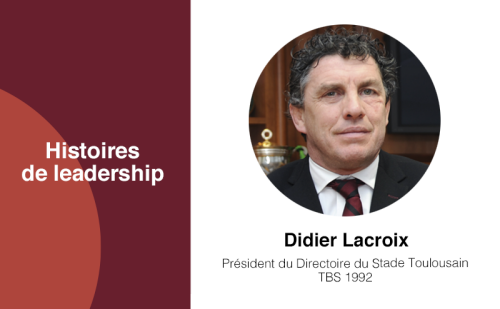






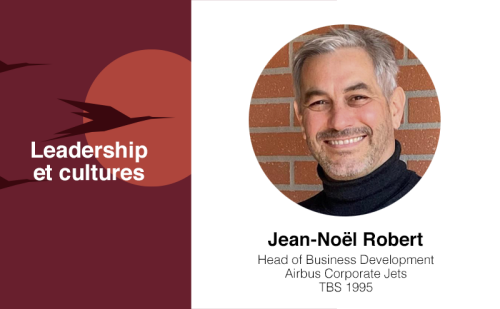




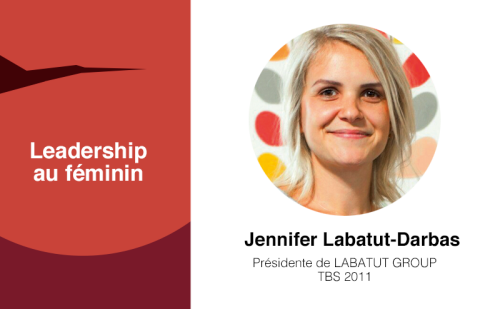




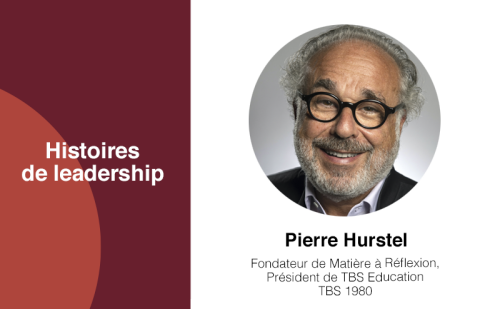


No comment
Log in to post comment. Log in.